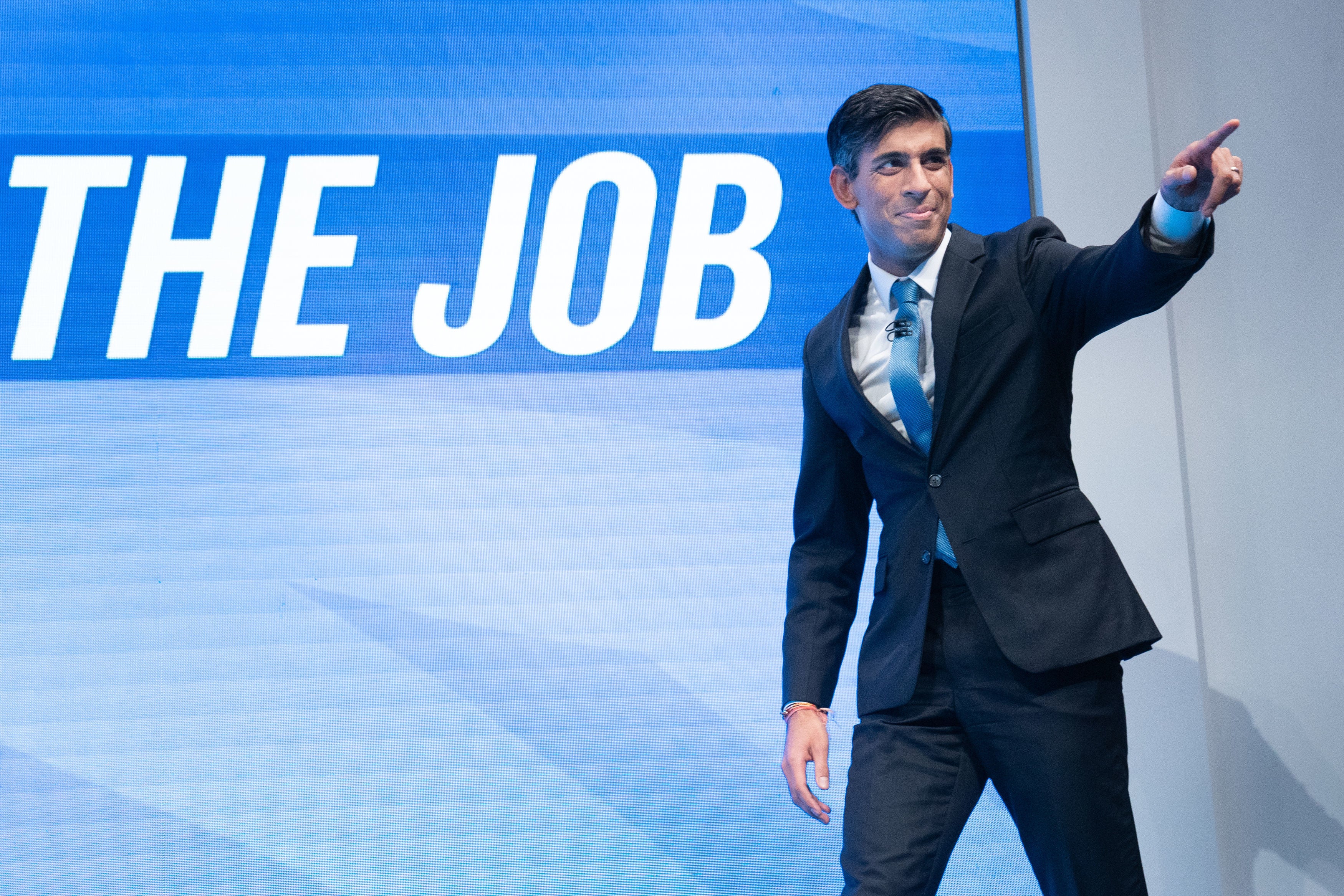At this stage, the Tories might as well make Rishi Sunak prime minister
What a paradox, that a candidate elected on the moonshine platform of ‘tax cuts’ should end up putting taxes up by more than her ‘orthodox’ opponent, writes John Rentoul


A big welcome back for the rise in corporation tax, planned by Rishi Sunak for next year, cancelled by Liz Truss, and now about to be the government’s policy again, as soon as Kwasi Kwarteng gets off the plane from Washington to accept the inevitable.
The prime minister and chancellor have just four days to put together a set of tax rises and public spending cuts that will make the Office for Budget Responsibility’s numbers add up. That is because the OBR needs two weeks to put the numbers through its computers before the Medium-Term Fiscal Plan on Halloween.
On that day, Kwarteng has to announce that he and the OBR agree that the measures he is presenting will stop the national debt rising within five years. If he fails to do that, the markets will panic. It is compulsory to describe the markets as jittery at the moment, but panic is different; neither he nor Truss would survive the meltdown.
So the numbers have to add up, and we have a good idea of the scale of the sums from the Institute for Fiscal Studies, which has done a fine job of putting itself in the OBR’s place. The government has to raise taxes and cut spending by a total of about £60bn a year to stabilise the debt.
Raising corporation tax produces a huge sum, but not nearly enough. Sunak’s plan, to raise the rate from 19 per cent to 25 per cent, would bring in about £18bn a year. A “Downing Street insider” told Harry Cole, the political editor of The Sun, that corporation tax “will not go all the way up to 25 per cent”. If it went to 24 per cent, it would raise about £15bn, about a quarter of the total needed.
A small extra sum might come from the “definitely not a windfall tax” on renewable electricity generators that was announced yesterday. It hasn’t been devised yet, but the Treasury will have to give the OBR an estimate of how much it will yield, and then reverse-engineer it to produce the amount first thought of. Kwarteng may have to increase the existing windfall tax on North Sea oil and gas producers, but even that won’t be nearly enough to balance the public finances.
That is why it seems likely that the cut in the basic rate of income tax will have to go as well – not just for next year, but for the foreseeable future. Sunak had it pencilled in for 2024, but it will have to go altogether. That is £5bn a year that the exchequer cannot do without. And it would still take the government only about halfway to the target. It is hard to see how Truss and Kwarteng can avoid setting higher taxes than we would have had if Sunak had won the leadership election.
What a paradox, that a candidate elected on the moonshine platform of “tax cuts” should end up putting taxes up by more than her “orthodox” opponent.
Once that becomes clear, Truss’s position will become even more precarious. If she gets through the Medium-Term Fiscal Plan on 31 October, she will still be on borrowed time. “There is a logical way to unburn toast, and that is to buy another loaf,” as Nathan Lloyd of Tony Blair’s Institute for Global Change said in a discussion of the Tories’ leadership dilemma today.
To keep up to speed with all the latest opinions and comment, sign up to our free weekly Voices Dispatches newsletter by clicking here
If Truss ends up adopting more Sunak policies than Sunak, the Tories might conclude that they may as well let Sunak administer them. In the short term, that is an impossible option: it would enrage the grassroots members, who can make life uncomfortable for a lot of MPs – hence the number of wild scenarios being discussed at Westminster today.
Paul Goodman, the Tory former MP and editor of Conservative Home, the activist website, this morning suggested an uncontested succession of Penny Mordaunt and Sunak, as a joint leadership ticket with Mordaunt as prime minister. I don’t think Sunak would accept that.
Attempts to find a “unity” candidate as a caretaker prime minister also seem doomed to fail. The reasons Ben Wallace, the popular defence secretary, refused to stand for leadership four months ago presumably still apply.
Some Tory MPs suggest that they need to give the party members until the local elections in May to come to terms with their mistake in choosing Truss; and that local councillors, usually the backbone of local Tory associations, losing their seats will help to concentrate minds.
But it doesn’t feel in Westminster today as if Truss can survive that long.






Join our commenting forum
Join thought-provoking conversations, follow other Independent readers and see their replies
Comments